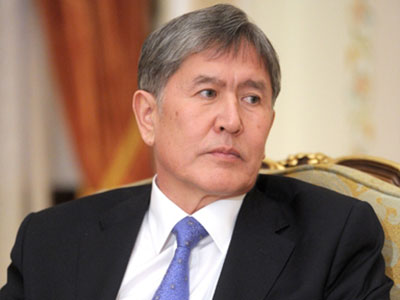KYRGYZSTAN VOTES FOR HARSH RUSSIAN-STYLE ANTI-GAY LAW

Almazbek Atambayev, President of Kyrgyzstan
Lawmakers in Kyrgyzstan have ignored international condemnation and overwhelmingly voted in favour of a harsh bill banning so-called gay propaganda.
On Wednesday, the alarming legislation was passed in its first reading 79 to 7 by the predominantly Muslim former Soviet state’s parliament.
The bill is said to be more severe than the Russian version adopted last year and will reportedly fine or jail anyone who promotes “a positive attitude toward non-traditional sexual relations” for one year.
It affects not only individuals and media outlets that disseminate LGBTI affirming information but will also ban groups that lobby for equal rights for gays and lesbians.
Lawmakers argued that the bill was necessary to “secure traditional family values.”
Nika Yuryeva, from local LGBTI organisation Labrys, said that MPS had voted to limit free speech and expression, encouraged physical, psychological and sexual violence against LGBTI people and removed the right of people to form organisations to represent their rights.
He said that the law was “a violation of the Kyrgyz Constitution, as well as a number of international human rights commitments of the country.”
Mihra Rittmann from Human Rights Watch described the law as a “shocking display of homophobia.”
She said that it will further stigmatise the already vulnerable LGBTI community “and, given the bill’s vague wording…” lead to “further abuse by police of LGBT people and anyone else who speaks positively about LGBT people and their rights, myself included.”
Last week, the US Embassy in Kyrgyzstan expressed its deep concern and said that the legislation “fundamentally threatens human rights, Kyrgyzstan’s democratic gains and constitutional guarantees.”
It added in a statement that, “People everywhere deserve to live in freedom. No one should be silenced or imprisoned because of who they are or whom they love.”
The bill must still be voted on in two more parliamentary readings before being sent to President Almazbek Atambayev, described as a Russian supporter, for his signature.
Russia has been accused of using its clout in the region to influence anti-gay sentiment. On Thursday last week, Estonia rejected this creeping conservatism and became the first former Soviet state to legally recognise gay relationships.
Are these things neanderthals or mongols?